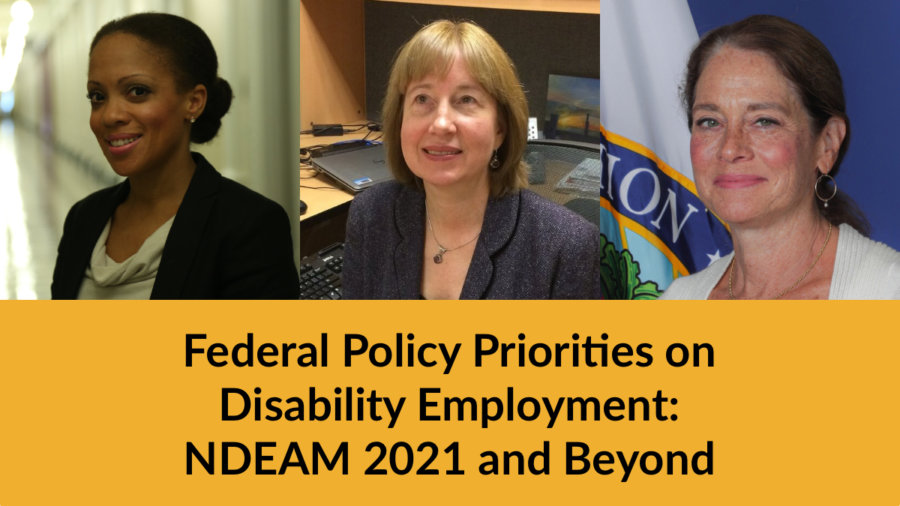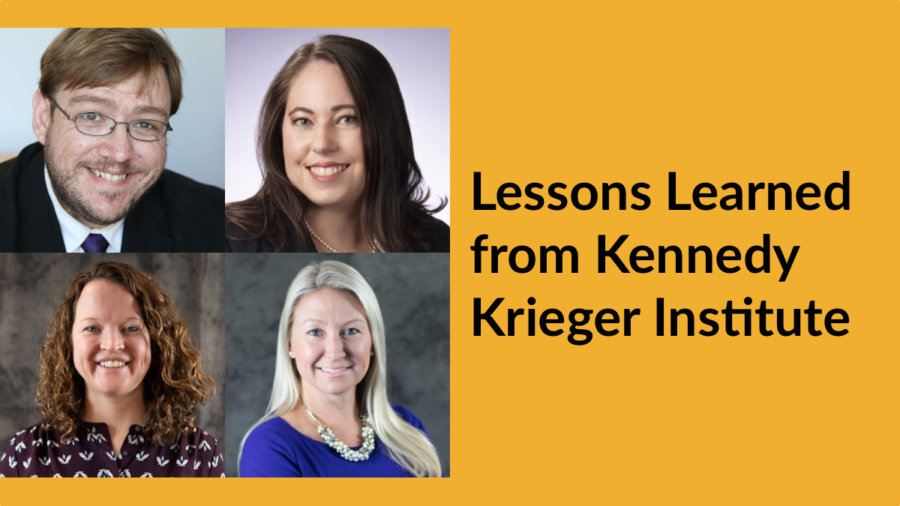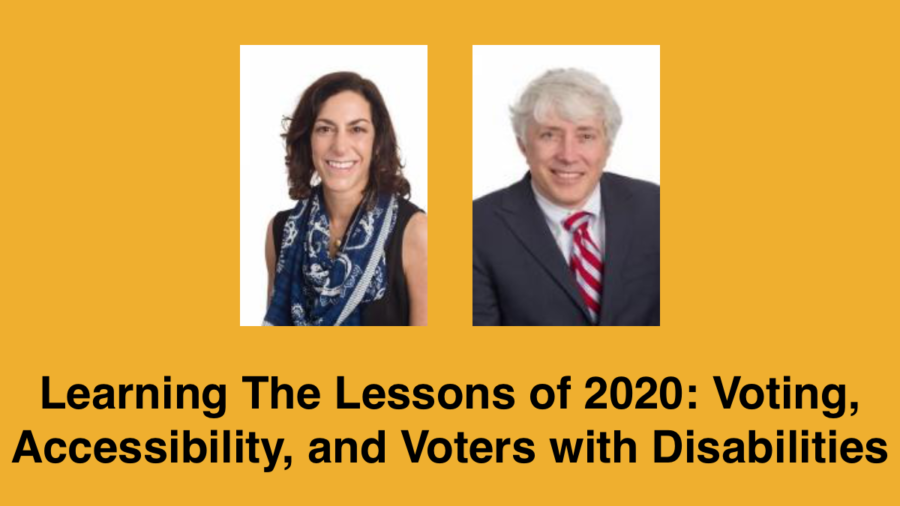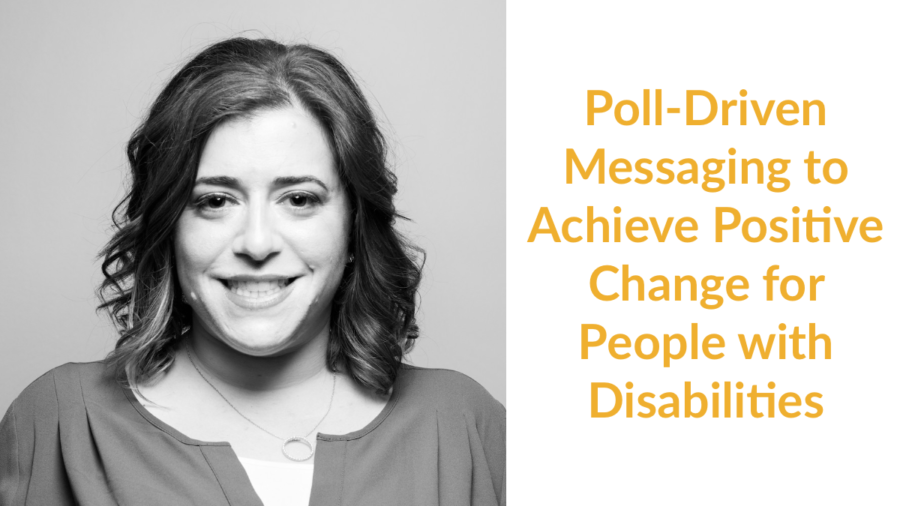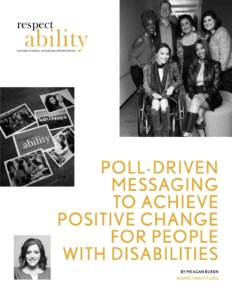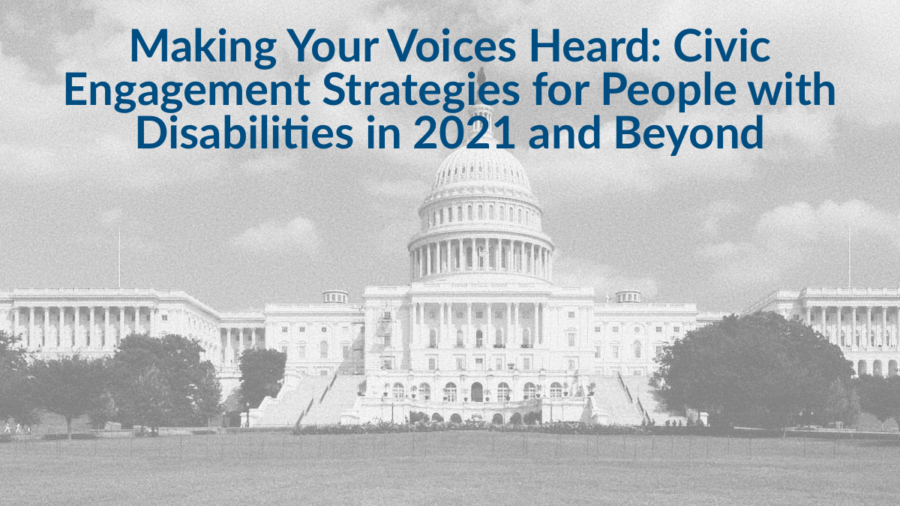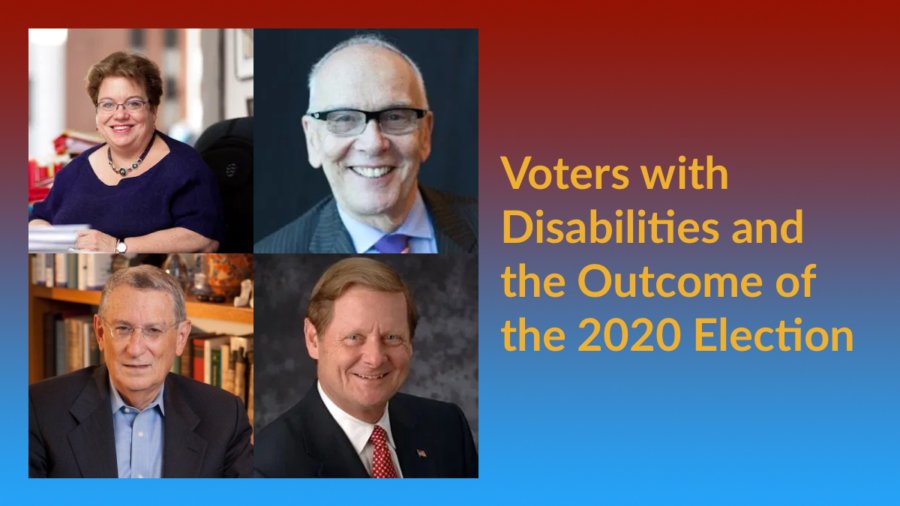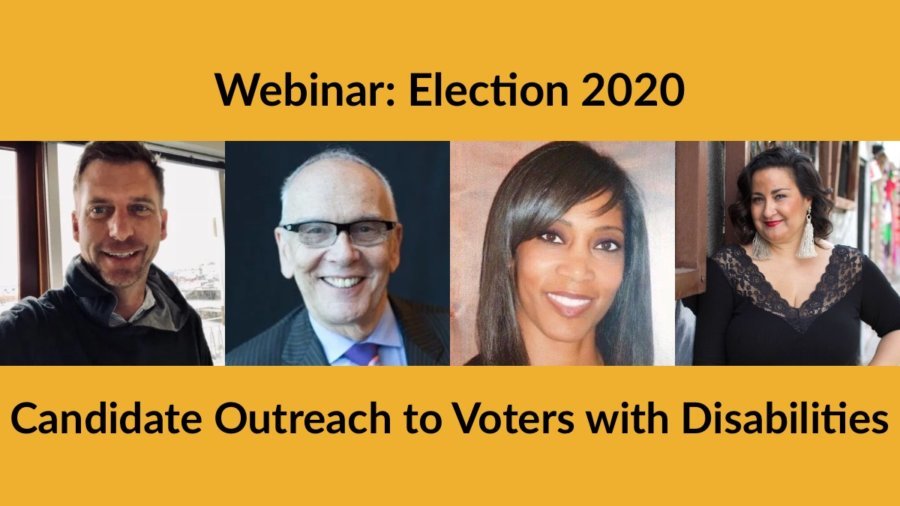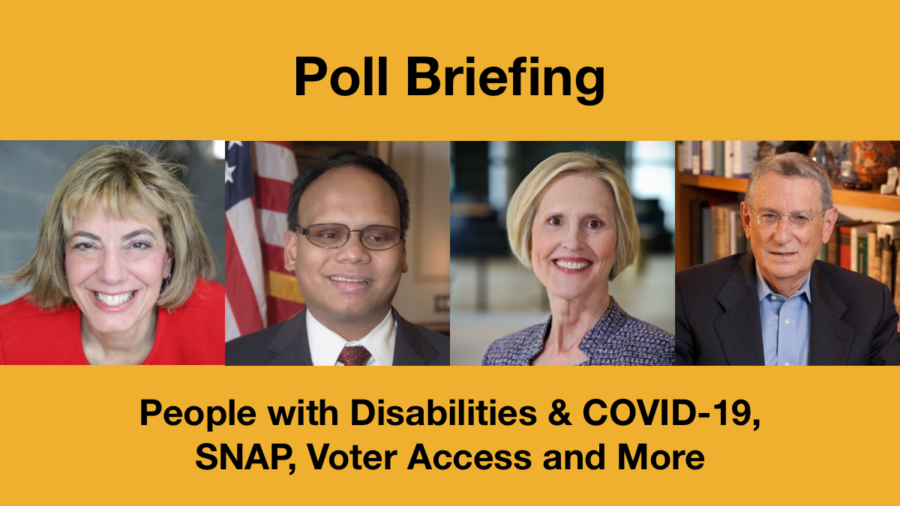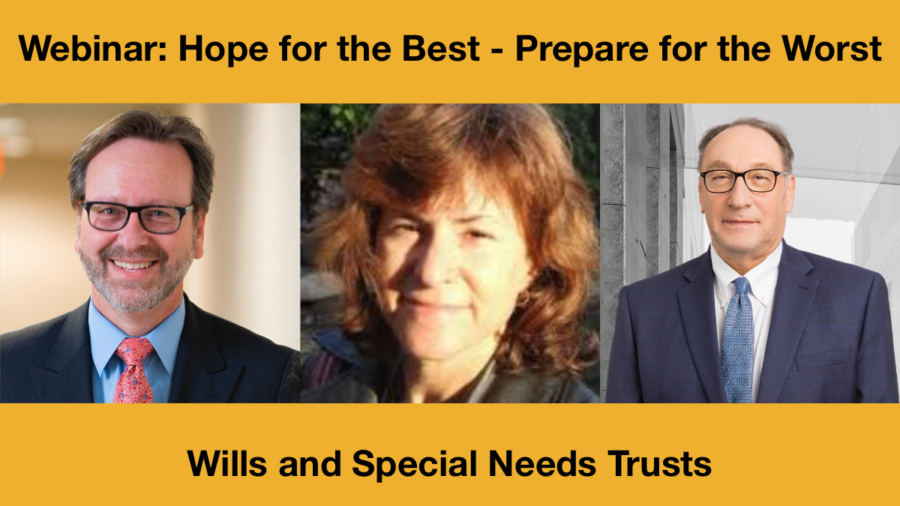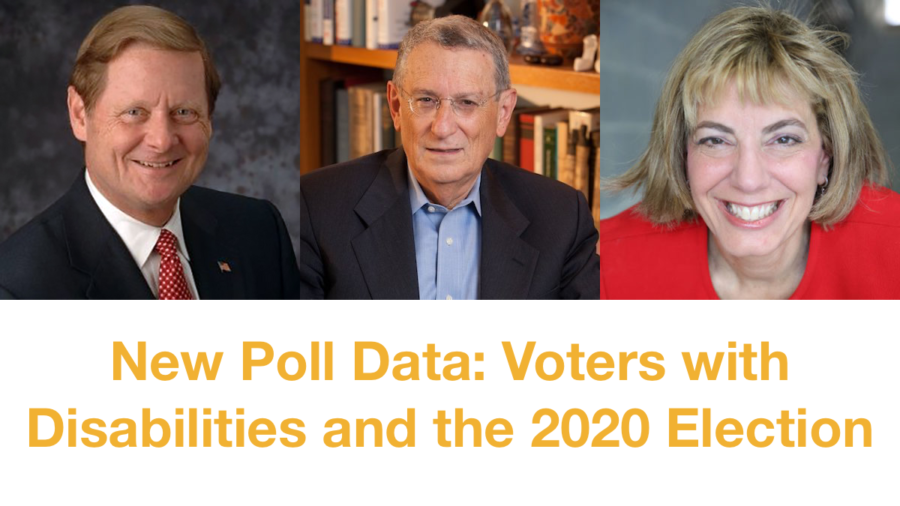The federal government is actively working to capitalize on the accessibility gains made by remote work and striving to implement policies to promote the safety of workers in diverse sectors of the economy. This webinar featured three key high-level federal leaders reflecting on their work, their priorities and their hopes for the months ahead. [continue reading…]
Advocacy Webinars
Lessons Learned from Kennedy Krieger Institute: Neurodiversity, Collaboration and Transition Success for Youth with Disabilities
Neurodiversity, system collaborations and transition services for youth with disabilities are some of the most cutting-edge topics in the wider world of disability employment. Fostering cooperation between different programs is critical for achieving transformative results for people with significant barriers to employment.
The Neurodiversity at Work programs at the Kennedy Krieger Institute is built on a foundation of interdisciplinary and interagency collaboration. It offers critical lessons and emerging practices for other youth serving agencies, organizations, and programs. This webinar discussed in detail what makes Kennedy Krieger’s work successful. [continue reading…]
Learning The Lessons of 2020: Voting, Accessibility, and Voters with Disabilities
Lessons from the 2020 Election for approximately 38 million Voters with Disabilities.
Read transcript
Download PowerPoint
Amid a global pandemic, fierce civil strife and a major economic crisis, millions of Americans safely and securely cast their ballots in 2020. More than in any previous election, the disability community was engaged, active, and made their voices heard. What lessons need to be learned from this election? How did expanded mail and absentee voting options help people with disabilities? What barriers still keep members of America’s largest minority community from casting their ballots? How did COVID-19 change the electoral landscape?
These are some of the critical questions answered by the groundbreaking work of Professors Lisa Schur and Douglas Kruse of the Rutgers Program for Disability Research. Professors Schur and Kruse joined RespectAbility for a special webinar reflecting on what their research shows and how future elections can be more inclusive. This webinar reflected on research recently published by the U.S. Election Assistance Commission (EAC) and identified key topics for future disability advocacy. [continue reading…]
Poll-Driven Messaging to Achieve Positive Change for People with Disabilities
Read transcript
Download accessible PowerPoint
In the aftermath of one of the most divisive election cycles in recent memory, it may come as a surprise that there is a proven place for positive messages that will win hearts and minds on critical issues facing Americans. Over the course of nearly a decade, RespectAbility has engaged in strategic public opinion research in order to advance opportunities and reduce stigma for people with disabilities.
Nearly 30 years from passing the ADA, research shows that pre-COVID, 70% of working age Americans (ages 18-64) with disabilities were out of the workforce, even though 71% say that they want to work. And, these staggering figures have remained largely unchanged since the ADA. While there are systemic policy and legislative challenges to advancing opportunities for people with disabilities, research consistently shows that whether it be “overt or unconscious bias,” stigma is the primary barrier.
Which begs the question, how do people with disabilities and those who care about them crush this barrier?
The short answer is positive, inclusive, hopeful messages supported by clear impactful facts that matter to a persuadable audience.
Join RespectAbility and pollster Meagan Buren of Buren Research & Communications for an in-depth review of messaging research on increasing opportunities for people with disabilities. Across many sectors from politics to philanthropy to religious institutions, positive messaging works! [continue reading…]
Making Your Voices Heard: Civic Engagement Strategies for People with Disabilities in 2021 and Beyond
Download transcript
Download accessible PowerPoint slides
In his final words to the nation, the late Rep. John Lewis said that “Democracy is not a state. It is an act, and each generation must do its part…” Those words have never been truer than today. Voters with disabilities have turned out in record breaking numbers to cast their ballots in 2020. However, being an active participant in America’s democracy does not end after you cast your ballot on Election Day. [continue reading…]
Voters with Disabilities and the Outcome of the 2020 Election: New Data and New Surprises
Read the transcript
Download the accessible PowerPoint
Election Topline – Word – PDF
Election-Eve Topline – Word – PDF
Now that the dust has settled on the outcome of the 2020 election, new data has poured in about voter preferences, turnouts, and ticket splitting. From the Democratic primaries all the way to election day, there have been unprecedented efforts by candidate for public office to talk about the issues most important to the approximately 38 million eligible voters with disabilities. Polling conducted earlier this year showed that the votes of the disability community were up for grabs all the way to November.
Watch the reveal of a new election day poll of over 2,400 voters completed by the national public opinion and political strategy research firm Lake Research Partners and in partnership with the National Disability Rights Network (NDRN). Our exciting panel helped make sense of how candidate outreach to voters with disabilities may have swung the election and where the disability community stands in relation to other underrepresented communities. [continue reading…]
Election 2020: Candidate Outreach to Voters with Disabilities
Read the transcript
Download Accessible PowerPoint
With the 2020 election just weeks away, candidates and campaigns are scrambling to reach persuadable voters and earn their vote. Researchers at Rutgers University estimate there are 38.3 million voters with a disability eligible to vote this November. From former Vice President Biden to candidates in down-ballot races at the state level, political candidates are reaching out to voters with disabilities and talking about the issues that matter most to them.
Featuring speakers from the National Disability Rights Network (NDRN) and RespectAbility as well as self-advocates from the community, watch a fascinating discussion about what campaigns and candidates have been doing to reach out to the disability community. [continue reading…]
Webinar: Hope for the Best – Prepare for the Worst: Wills and Special Needs Trusts
Read the transcript
Download the accessible PowerPoint
Watch the webinar on YouTube with captions
Speakers:
Evan Krame, Rabbi and Lawyer
Michelle Wolf, Founding Executive Director, Jewish Los Angeles Special Trust
Frederick M. Misilo, Jr., President, The Arc and President, Fletcher Tilton, PC
With the COVID-19 crisis, people are writing their wills faster than ever before. However, if you have a loved one with a disability, you need to know how to protect both their access to ongoing disability services and assets. This session gave key information on how special needs trusts can help you avoid having a well-intentioned will cut someone off their life-saving access to healthcare or their housing or job supports. Hear from caring experts who will help you provide for the safety and security of those who you love most! [continue reading…]
NEW POLL DATA: Voters with Disabilities and the 2020 Election
Read the webinar transcript
Download the accessible PowerPoint
Watch the webinar recording on YouTube with captions
Read the press release
Read the memo
Download the cross-tab data
As the country is gripped with issues surrounding the coronavirus, find out what the community who is the most at risk – people with disabilities – cares about and who they are supporting in the upcoming 2020 election cycle.
Stan Greenberg PhD from the polling firm Greenberg Quinlan Rosner Research (GQRR) and the disability inclusion organization RespectAbility discussed new findings from a recently completed phone poll of 1,000 registered voters in a 16-state Presidential and Senate battleground, conducted by Democracy Corps and Greenberg Research. [continue reading…]


